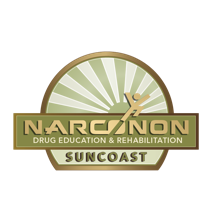Artistic Expression in Recovery

Recovery from drugs and alcohol can be difficult. Overcoming the loss of identity and the emotional void can present a challenging obstacle no matter how long a person has been sober. For many, sobriety is a new frontier and it can be easy to lose your footing on the unfamiliar ground of a sober life. However, there are tools available to help guide the way. Artistic expression can be a very effective way to help heal past wounds. Listening to and playing music, dancing, creative writing, drawing, and painting are all great ways to cope with some of these voids often associated with recovery.
The relationship between mental and physical health, and the creative mind provides a potential for healing that is often overlooked. In fact, holistic approaches to healthcare, particularly in rehabilitation, active and passive engagement with creative activities have shown promising results. They have been shown to be effective at healing emotional injuries, providing an increased understanding of oneself and others, giving capacity for self-reflection, and altering behavior and thinking patterns.
Though it is only recently being studied by professionals, art can be beneficial to a person’s wellbeing. Anyone who has gone to a concert with sober friends or kept a journal to express their thoughts to reflect on later will tell you the activity can provide them perspective. It is good to know that empirical evidence is now being gathered regarding this subject, it is apparent that creative expression has, and always will be good for your health.
Here are some tips for putting your mind at ease, enjoying your time, and expressing yourself in a positive way.

Writing
Writing is one of the most direct ways of expressing your thoughts. There are many different ways to approach this outlet. Some people prefer poetry and song lyrics, others use a journal, and still others through storytelling. None is better than the other, it just comes down to preference. Regardless of your method, the benefit of creative writing is the ability to write things down you may not want to verbalize, things that you feel might be better left unsaid. Writing metaphorically about a subject or feeling is a good way of coping and will perhaps allow you to eventually deal with the harshness of a more direct approach. Additionally, you will be able to reflect on your writings later. This gives insight into who you are as a person—how you felt when originally writing something might not be the way you feel now. When this happens, it is important to recognize the changes, and try to reflect on the circumstances of the change. This will give you a sense of identity, and a look at yourself indirectly; a gaze through a lens to a past version of you is often quite informative, allowing for personal growth.
Music

When asking a musician why they play, what they will often tell you is they have to, there is no choice. It is part of who they are, an extension of themselves projected through an audible medium. This identity of expression through music is shared by everyone, not just musicians; music may be the true universal language. To some degree, even animals seem to enjoy it. Whether you are performing, dancing, or just listening, everyone can agree that music affects you in some way. For thousands of years, it has been used in healing and rituals. Today is no different, it is hard to come across a religion or nation without some form of music associated with it. In modern times, the effects of music on the brain have been well documented.
In recovery, music is just as essential. It provides comfort, familiarity, and enjoyment. Though everyone has a preferred genre, all types of music can be enjoyed. After going through your go-to tracks, try listening to another type of music. Different types of music can provide different effects on your overall demeanor, evoking, or soothing different emotions. This is such a great tool for recovery—when your mind is still reeling from the effects of drugs and helps provide emotional balance and well-being.

Art
Art is inherently an expression of emotion and thought. From the way the lines are drawn, to the color chosen, and ultimately the overall image, art can be a direct look at one’s feelings. The benefits of drawing, painting, et cetera, are virtually self-evident when dealing with recovery. As with the other forms of expression, it relieves stress and helps cope with some of our negative feelings. A good exercise is to draw an object in your vicinity, and then begin adding in background detail of your choosing. This manipulation of the environment around you reinforces the idea that you are in control. There are a plethora of other ways to go about composing art, and there are no limits to what you can do. A great way for addicts in to express themselves.
In recovery, the need for a healthy outlet is important. The pain and emotions that drugs and alcohol used to mask, represent a void that must be filled, creating a vicious cycle of using, feeling bad, and then using again to feel better. Learning how to replace that cycle with healthy habits is part of recovery, provides self-comfort, and can help contribute to long term sobriety. The potential for self-growth and understanding from creative expression is exponential. All you need to do is pick up a pen, or paintbrush, or listen to music, or mold clay, or… the possibilities are endless!
James F.—Narconon Suncoast Graduate and Contributor
About the Author:
James is a musician, avid reader, and explorer. After traveling for most of his life, the most beautiful place he’s ever been has been recovery. He strives to show the beauty of life after addiction through self-love and a healthy routine. His experience and love of others has provided hope for many of those still struggling.

